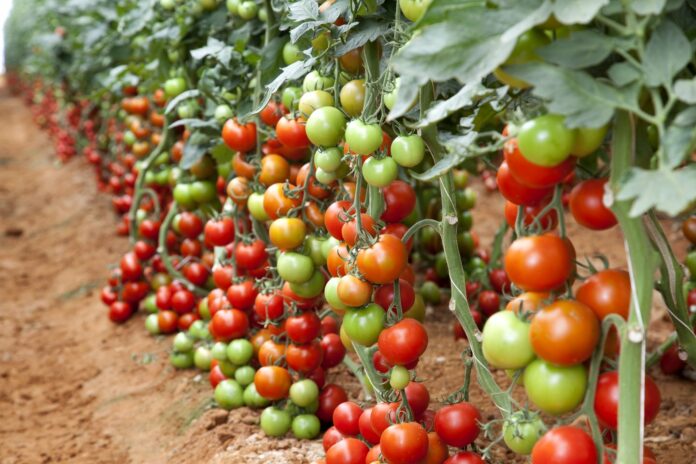Tomato farming is a highly profitable crop for commercial farmers in Kenya. It is because of the fruit’s wide consumption due to its health benefits.
It is a widely used food spice in green vegetables like kale, cabbage, and African leafy vegetables. The fruits can be eaten fresh, added to salads, cooked as a vegetable, or processed into tomato paste.
The demand for tomatoes is always high in both small markets as well as in big cities like Nairobi, and this is the fact that has encouraged many people to invest in large-scale tomato farming.
While some farmers have become millionaires through tomato farming, others have failed terribly. What makes the difference is the farming practices you employ on your farm.
While growing tomatoes, its imperative to ensure they are under the optimum conditions. Tomato performs well in deep well, drained soils under warm or hot climates.
You need also to go for varieties that are highly producing and disease resistant. Proper pruning and staking should be done early as it helps the plant to receive maximum sunlight throughout its growth period.
Mistakes you must avoid to make money from tomato farming in Kenya
On fertilizer application, you will need to feed your crop different fertilizers at different stages to maximize your yields.
According to experts, the best fertilizer for tomato plants should contain macronutrients such as nitrogen, phosphorous, and potassium and essential micronutrients such as magnesium, calcium, boron, and zinc.
Phosphorous is vital for the growth of roots and fruits and should be applied in the initial stage of growth as well as in the final stage.
On the other hand, potassium helps with flowering and the general growth of the plant. It is also an important component in photosynthesis. It also helps the plant to remain tolerant to diseases.
Nitrogen is also important when growing tomatoes as it helps with foliage but should be applied moderately as too much application leads to bushy plants with little or no fruit.
Key to note is that tomato seeds do not need any added nutrients to germinate, as the seed contains sufficient amounts to put up the first true leaves.
The fertilizer application should be initiated after germination. Once the crop has fully grown, it may need some additional fertilizer too, but this will depend on many factors, such as the type of tomato, the soil, and the environmental conditions.
How to profitably grow hybrid tomatoes in Kenya on one acre
Best Fertilizer in Each Growth Stage
The fertilizer requirement for a tomato plant changes in every stage of growth. However, it is important to understand that to use any fertilizer on your farm, you need to test your soil first to know its status.
Testing the soil will help you know the missing nutrients that need to be added.
Transplanting
When transplanting, it is important to know that all plants need nitrogen for growth. Most soils contain sufficient nitrogen for growth, but if you feel like the nitrogen available is not enough, you can test your soil to know the right amount that needs to be added.
Pre-Flowering Stage
Nitrogen is an essential component during the growth phase of your tomato plant as it helps in the formation of many structures like chlorophyll, which aids photosynthesis.
If you want your tomatoes to produce more flowers, use nitrogen in moderation, as excess use will attract the growth of more leaves than flowers.
At this stage, potassium is also very important as it helps promote strong growth. Your potassium levels should be at least double that of your nitrogen.
Flowering to Ripe Fruit Stage
While nitrogen is still important in this stage, if you notice good growth, then there is no need to add more. The most important fertilizer in this stage is phosphorus and potassium.
Phosphorous helps in the production of good fruits, while phosphorus helps in both photosynthesis and in ensuring tolerance to diseases.









